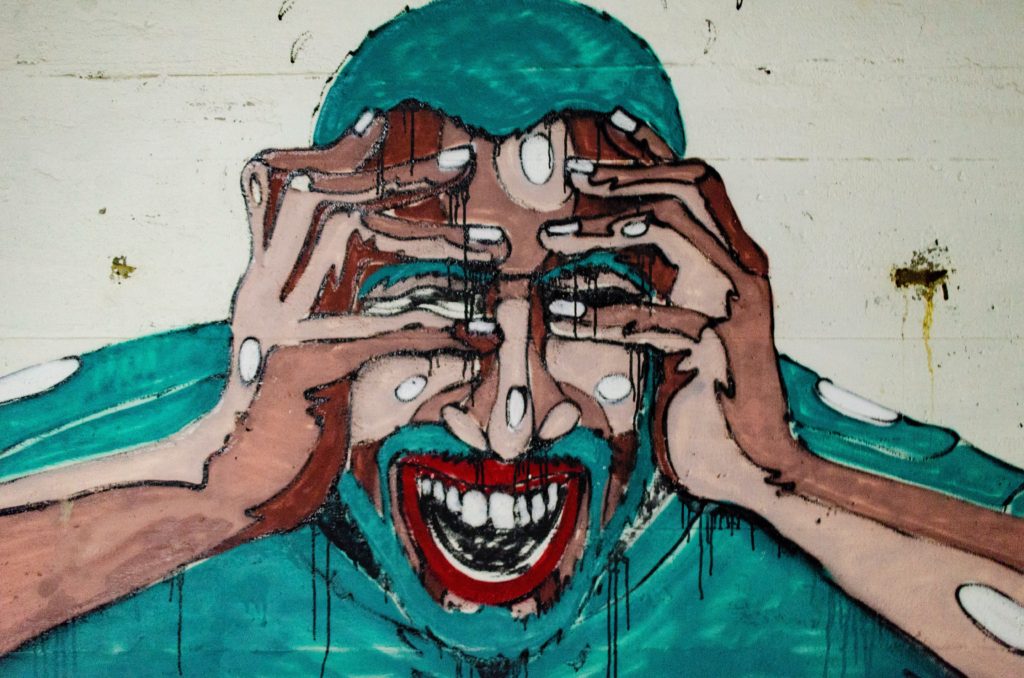A very interesting article in the New York Times, “At 71, She’s Never Felt Pain or Anxiety. Now Scientists Know Why“ outlined the case of a woman, Jo Cameron, who does not feel pain. She often damages herself because her body does not give her any warning of danger. Almost as interesting is that her cuts and burns very seldom left scars and she heals quickly. Scientists attribute her inability to feel pain and fast healing capacity to a microdeletion in part of a gene called FAAH-OUT, which affects the endocannabinoid system.
That is not the end of the story. Ms. Cameron has never felt fear, depression or anxiety. That is fascinating.
Are resilience to physical and emotional pain connected?
Do those who have a high pain threshold also experience less mental illness? Do people who experience less emotional pain also experience less physical pain?
Whilst it may appear like a superpower to move through life pain-free, the issue is that pain serves a purpose. Pain makes you want to alter your behaviour. Academics no longer believe pain is not a measure of tissue damage. Those who work with people in pain know that pain is a complex and highly sophisticated protective mechanism. The NYT article states that Ms. Cameron had a hip replaced at 65 years old but did not know she had severe degeneration in the joint. Why she had a hip replacement when it was not affecting her lifestyle, I do not know. The financially driven medical system of the USA, I assume. Or, to give her doctors the benefit of the doubt, perhaps she had severe limitations in the joint.
It appears despite her quick-healing ‘superpower’ it did not seem to prevent osteoarthritis. Cameron also had an operation on her hand osteoarthritis, which is when her doctor were bemused by the patient’s lack of pain or need for analgesia, and cataysed the case report that demonstrated her genetic mutation. Similarly, a paper showed that a CRISPR experiment in a human cell line appeared to mimic Ms. Cameron’s FAAH-OUTÂ microdeletion.
Despite its complexity, pain is intended to be an alarm telling you that something is damaged or could potentially be damaged. It is main reason that people visit their GP. If you do not feel physical pain, you could be acutely damaging yourself and be unaware,
Similar, having no anxiety or fear can be beneficial, however it is possible that you could be in a rather dangerous place, and if you do not perceive it as threatening, this may increase your chances of injury and/or death.
The case of Ms Cameron got me thinking about the links between chronic pain and mental health issues. Researchers studied the biology behind chronic pain in a Genome Wide Association Study (GWAS), This was the largest genetic study of chronic pain ever conducted. They found DNA risk markers were shared between chronic pain and major depressive disorder (MDD), one of the largest contributors to “years lived with disability”, with around 50% of the DNA risk markers shared between chronic pain and MDD, as well as overlap between pain and schizophrenia, and post-traumatic stress disorder (PTSD), amongst others. Chronic pain can be defined as ‘prolonged physical pain that lasts for longer than the natural healing process should allow’ which is usually three months for most body tissues. The study demonstrated chronic pain was a causal factor for MDD, but the reverse did not apply.
Being in pain day in day out is likely to lead to depression but why the association with schizophrenia and PTSD. The case of Ms Cameron does bring up a lot more questions than these studies have answerd
Is there something to persistent emotional pain (e.g., depression, anxiety) that impedes with the physical healing process or the bodies ability to recognise that healing has taken place and ‘turn down’ the pain response? Similarly, could chronic physical pain interfere with the emotional healing process? Is emotional pain and physical pain the same or very similar responses and pathways in the brain?
I am not the alone one asking these questions. All physiotherapists and pan therapists know that you have to treat the whole person – biology, psychology and sociology – to treat pain. Even the NY Times ran a follow-up on the connection between pain tolerance and anxiety. Lots of interesting research topics and PhD theses to investigate.
Enjoy!
Scott
Reference: https://peterattiamd.com/what-if-you-never-felt-pain-or-anxiety/

